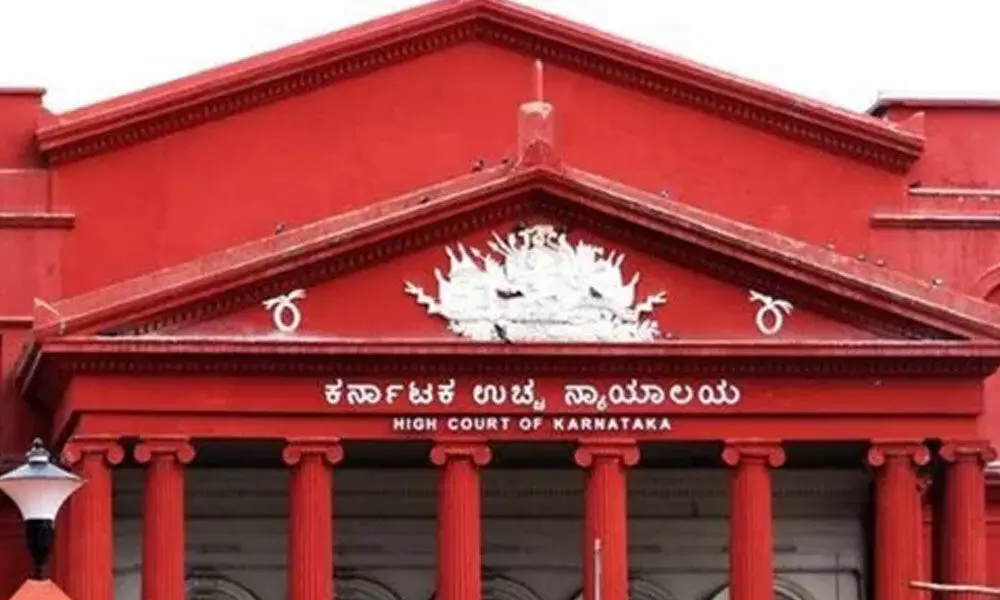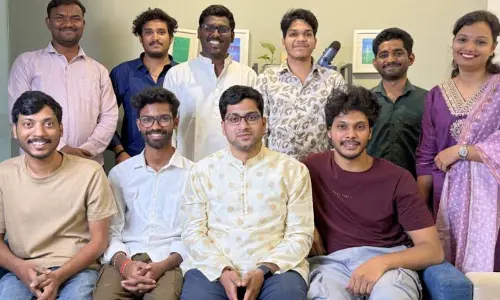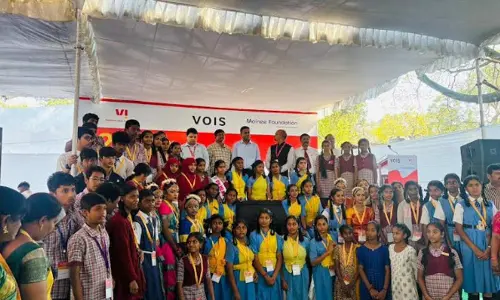Karnataka High Court grants interim relief to Twitter India MD Manish Maheshwari

Karnataka High Court
The Karnataka High Court on Thursday granted interim relief to Twitter India Managing Director Manish Maheshwari and told Ghaziabad police not to take any coercive action against him.
Bengaluru: The Karnataka High Court on Thursday granted interim relief to Twitter India Managing Director Manish Maheshwari and told Ghaziabad police not to take any coercive action against him.
Bangalore-based Maheshwari moved the high court after the Ghaziabad police summoned him to its Loni Border police station on Thursday to record his statement in connection with a video that seemed to show a hate crime targeting a Muslim man in Ghaziabad, and was amplified as such. The police, however, subsequently claimed it was not a communal incident.
Maheshwari claimed that the Ghaziabad police had first issued him summons as a witness, to help in the investigation of the case. "Just two days before they issued me a notice under Section 41A of the CrPC (notice for appearance before a police officer), they had issued a notice under Section 160 CrPC, calling me as a witness," Maheshwari's statement to the court said.
Counsel for Maheshwari Nagesh submitted that the petitioner, being a mere employee of Twitter Communications India Pvt Ltd, had no role to play in the circulation of the video. It was submitted that the petitioner was not a member of the board of directors of the company and was only the revenue head looking after advertisement sales. Although a designation of 'Managing Director' was given to him, such designation is not in terms of Section 2(54) of the Companies Act 2013.
"Twitter is not controlled or administered by him. Company's name is Twitter Communications India Pvt Ltd. Who is he? An employee," the counsel for Maheshwari contended.
A single bench of Justice G Narender passed the interim order on a writ petition filed by Maheshwari under Article 226 of the Constitution of India, challenging the UP Police notice.
In the interim order, the high court said that the matter requires consideration, and restrained the Ghaziabad police from initiating any coercive action against Manish Maheshwari till June 29 when the court said it will hear the case further. The court added that in the meantime, if the Ghaziabad police want to examine Maheshwari, they can do so through the virtual mode. Maheshwari had earlier told the Ghaziabad police that he was ready to join the probe via video call.
The summons sent to Maheshwari were a part of the Ghaziabad police's probe into the FIR it has filed against Twitter India and other popular websites, as well as journalists Mohammed Zubair, Rana Ayyub, author Saba Naqvi, Congress politicians Salman Nizami, Maskoor Usmani and Shama Mohamed for sharing the video with an intention to provoke communal unrest. The journalists made it clear that they shared the victim's version only. Following an anticipatory bail plea moved by Rana Ayyub, the Bombay High Court granted her protection from arrest for four weeks. Mohammed Zubair has moved the Karnataka High Court for bail, and the court has issued notice in the case.
In video clip that went viral an elderly Muslim man identified as Abdul Shamad Saifi alleged that he was attacked and asked to chant 'Jai Shri Ram'. The Ghaziabad police, however, ruled out a communal angle and said that the incident was a result of personal enmity as the accused were unhappy about a 'tabeez' (amulet) Saifi had sold to them. Saifi's family has denied the police's version.
In the FIR, the Ghaziabad police said that despite the police's statement on the incident, those named as accused did not take down their tweets where they had shared the video. Twitter has also been named in the FIR as it did not take any action to take down the tweets, the police said. The Ghaziabad police have been criticised for filing an FIR against journalists and a news website. The Wire responded to the FIR with a statement saying that the action by the police is "an attempt to criminalise the reporting of anything other than the official version of events." The Editors Guild of India, in a statement, condemned the "wanton misuse of laws to criminalize reporting and dissent and harass independent media".










